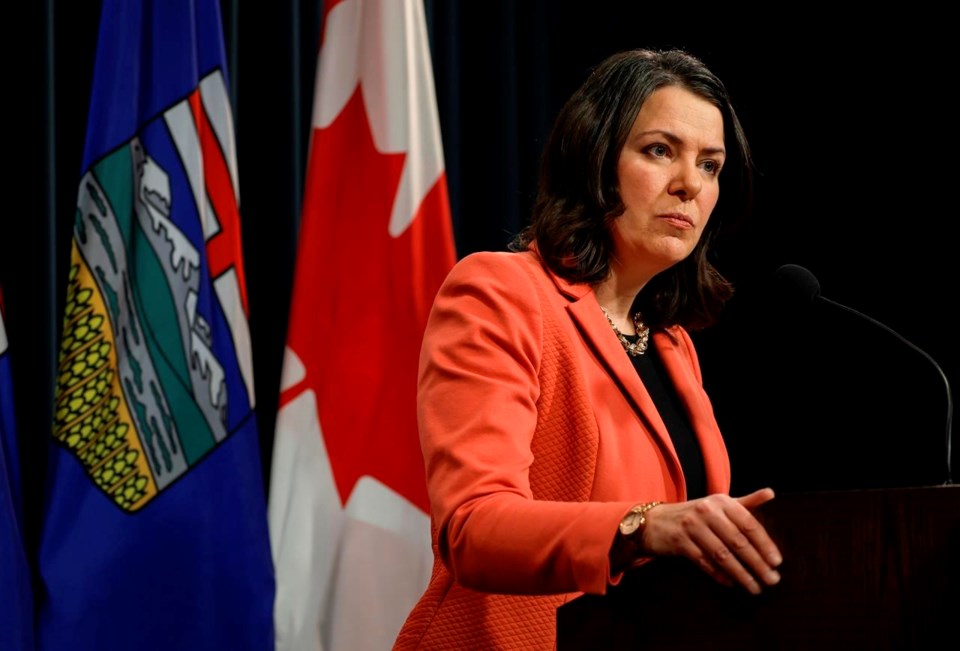EDMONTON — Premier Danielle Smith won’t commit to using Alberta's controversial sovereignty act to rebut looming federal “just transition” legislation, which she calls an existential threat to her province’s bedrock oil and gas industry.
Smith says there are still unanswered questions and other options to address the federal proposal and Alberta will not allow its oil and gas industry to be phased out of existence.
“I have to see what it is that (Prime Minister Justin Trudeau) has planned,” Smith told reporters in Calgary on Tuesday.
“We haven’t made a decision to invoke the sovereignty act on anything.”
Smith said Alberta is on board with reducing greenhouse gas emissions and is pursuing green projects like carbon capture usage and storage, But, she added, it must be done in a way that allows her province to still meet the needs of global energy demand.
“It (the sovereignty act) is one more tool in us pushing back against Ottawa. I think we’ve got lots of tools at our disposal,” she said.
“We are going to make sure that we put forward a robust plan to reduce emissions in a way that works for Alberta and then we’ll be prepared to — if we have to – to have (the federal government) take us to court to fight it out. Because we are not phasing this industry out. We don’t have to.”
Smith has long accused Trudeau’s government of interfering with Alberta’s resource development and last month told the legislature: “It’s not like Ottawa is a national government.”
Her United Conservative Party government passed in December a constitutionally questionable sovereignty bill that grants Alberta the power to direct its agencies to flout federal laws and initiatives deemed inimical to provincial interests.
The bill was amended after public outcry over a provision that granted Smith’s cabinet the power to rewrite laws outside of legislature oversight.
Smith has since toggled on using the act, saying she wants to proactively employ it on a range of initiatives while also saying it would only be used reluctantly as a last-ditch option.
Last week, federal Natural Resources Minister Jonathan Wilkinson said Ottawa will move ahead this spring with legislation to provide the framework for the transition plan.
The federal government says the plan is not about shutting down oil and gas but rather providing a training and incentive blueprint for workers to make a seamless transition as the world moves to a less carbon-intensive economy.
Wilkinson said if anything, the concern will not be a lack of jobs but finding workers to fill the long-term needs in the changing energy landscape.
Trudeau turned up the temperature on the rhetoric last week, urging Alberta to spend some of its budget surplus to incentivize tax credits for carbon capture and storage while calling out the province as a laggard in fighting climate change.
Smith said Alberta has pursued carbon capture and other green technologies for years.
“I would just like to see that they’re recognizing that we’re a leader in this area. We are a leader on hydrogen production. We’re a leader on carbon technology, as opposed to (Ottawa) acting like somehow we’re late to the party on this. We’re not.”
The term “just transition” emerged from the 2015 Paris Agreement on climate change as a shorthand for ways to reduce hardship for workers as economies move away from high-carbon energy.
The Liberals promised during the 2019 election campaign to proceed with such legislation. It is also a condition of the deal signed last year with the NDP to keep Trudeau’s minority government in power until 2025.
This report by The Canadian Press was first published Jan. 10, 2023.
Dean Bennett, The Canadian Press


